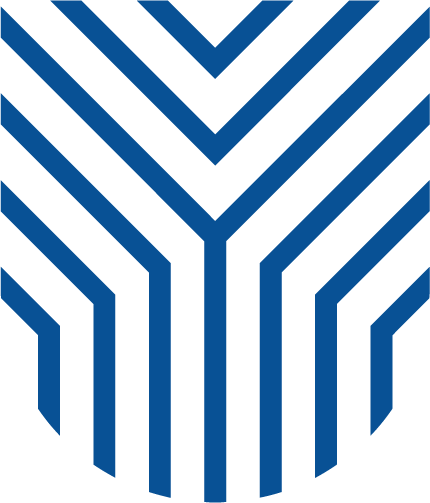
About This Job
Ever wondered what is involved in getting the products purchased at the store, to the store? This is all made possible by an organization’s supply chain, led by supply chain managers who oversee supply chain management (SCM). SCM is the process of strategically managing the flow of goods, services and knowledge – plus organizational and supplier relationships – to support the organization’s goals. SCM has evolved from a tactical to a strategic level, creating a unique competitive advantage for organizations through cost leadership, differentiation, or response
strategies. Competition is no longer company versus company; it is now supply chain versus supply chain.
SCM is a globally recognized profession with roles spanning functions throughout the supply chain, from the raw materials stage to when goods and services are in the consumer’s hands. This provides a variety of options to build and develop a successful and fulfilling career, including planning, sourcing, contract management, supplier relationship management, risk management, inventory and materials management, quality, manufacturing, transportation, and logistics.
The SCM profession lends itself well to leadership roles, equipping people with a toolkit of skills. SCM jobs: Buyer and/or Planner, Scheduler, Category Manager, Procurement Specialist, Contract Manager, Operations Manager, Logistics Coordinator, Inventory Manager, Warehouse Manager, Distribution Manager, Supply Chain Manager, Director of Supply Chain, Vice President, President/CEO, and others.
What is Supply Chain Management?
Key Duties
What do supply chain managers do? They increase value and savings; build relationships and drive innovation; improve quality and reputation; reduce time-to-market; manage supplier risk; generate economic impact; and contribute to the company’s competitive advantage.
The supply chain umbrella includes:
Early planning and early supplier involvement
Procurement and strategic sourcing
Developing and negotiating contracts
Quality assurance
Demand and supply planning
Receiving, materials handling, and storage
Material and inventory control
Order processing
Production planning, scheduling, and control
Shipping, warehousing and distribution
Import, export and logistics
Inbound and outbound transportation
Critical Skills
Top Five Technical Skills:
- Inventory Management
- Best Practice Knowledge
- Project Management
- Computer Skills
- Risk Management
Top Five Leadership Skills:
- Effective Communication
- Collaboration with Others
- Critical Thinking
- Big Picture Future Planning
- Problem Solving
(According to ASCM 2020 Survey (USA))
Work Environment
The work environment varies depending on the role, and it can span between two extremes:
- Purchasing, quality assurance, planning, order processing, and production are usually in offices requiring minimal physical exertion, with little exposure to hazardous working conditions.
- Transportation, materials management and control, shipping/warehousing/distribution are usually in a shop floor environment, requiring physical exertion, with possible exposure to hazards.
Public Versus Private Procurement
Procurement for government organizations is like private companies in terms of supply continuation, quality, savings, value, efficiencies, and lowest life cycle costs. Public also involves posting and awarding public bids, ensuring compliance with trade agreements, conducting detailed bid evaluations and vendor debriefs, and being open, fair, and transparent to bidders and the public.
Supply Chain Management Professionals (SCMP) in Canada
SCMPs, on average, earn 12%+ more annually than those without the designation. Supply Chain Canada™ (SCC) represents and serves more than 7,500 professionals. It is one of Canada’s most sought after designations for those entering and advancing in the field.
Yorkville University’s Supply Chain Management specialization courses offer a transfer credit pathway toward the SCMP designation: Yorkville University’s Accreditation Agreement with Supply Chain Canada (SCC)
Reciprocal Designation – Supply Chain Canada™ has signed agreements with the Institute for Supply Management (ISM) in the U.S. and the Chartered Institute of Purchasing & Supply (CIPS) in the U.K. to provide reciprocity between their globally recognized designations.
Designations covered are:
- SCMP™ – Supply Chain Management Professional™ (SCC)
- CPSM® – Certified Professional in Supply Management® (ISM)
- MCIPS – Member Chartered Institute of Purchasing & Supply (CIPS)
SCMP designation holders are eligible for reciprocal designations if they meet criteria. This increases opportunities and global marketability. Whether working abroad or collaborating with partners in other countries, a reciprocal designation will enhance recognition of your skills internationally.
The Five “Rights” of Purchasing Are:
Getting the “Right” Quality,
in the “Right” Quantity,
at the “Right” Time,
for the “Right” Price,
and From the “Right” Source.
Job Search Tips - Where to Focus Your Time
- Meet with a YU Career Services Advisor
- Find creative ways to gain experience
- Learn about industry contacts and topics via free supply chain e-newsletters, e-communications, and magazines.
- Attend events, and find a mentor
- Join a professional association, and actively participate to maximize benefits
- Join LinkedIn Groups
- Aspiring entrepreneurs can join a business networking group
- Attend conferences and events
